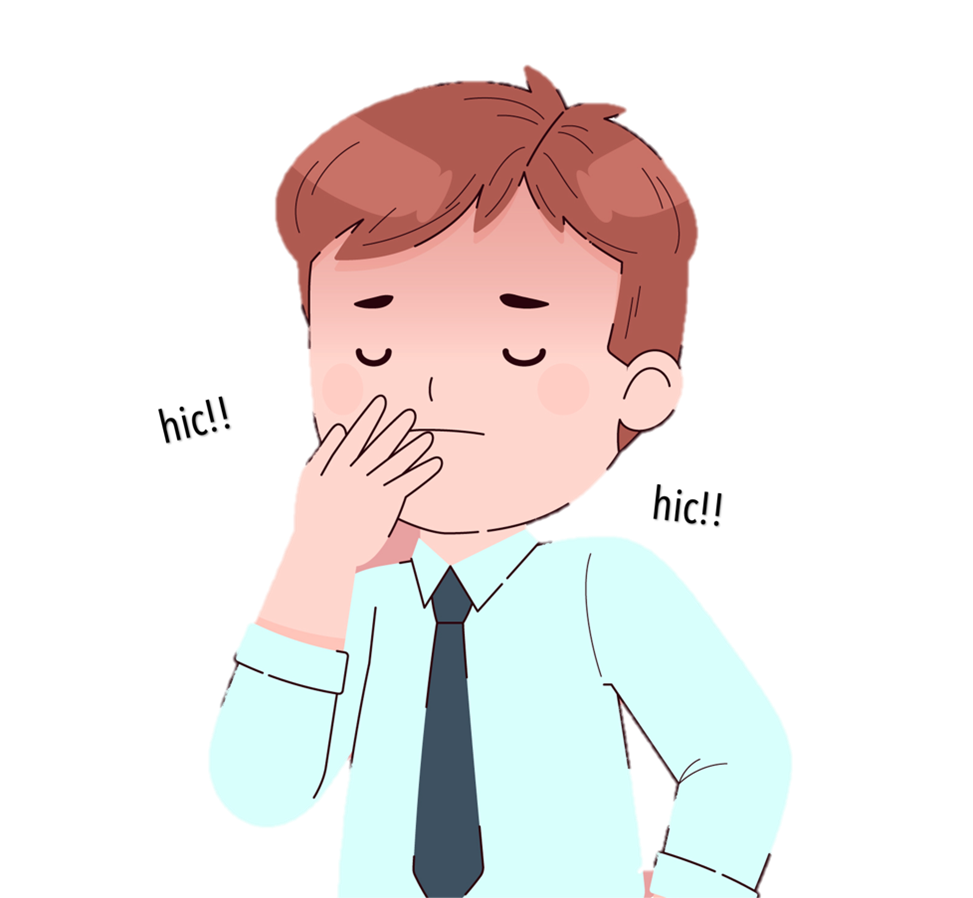Hiccups, also known as hiccoughs or singultus, are involuntary contractions or spasms of the diaphragm muscle. The diaphragm is a dome-shaped muscle below the lungs that plays a crucial role in breathing.
When we inhale, the diaphragm contracts and moves downward, allowing the lungs to expand and fill with air. During hiccups, however, the diaphragm suddenly contracts involuntarily, causing a sharp intake of breath. This contraction is followed by the rapid closure of the vocal cords, which produces the characteristic “hic” sound.
The exact cause of hiccups is not fully understood. Still, common triggers include eating or drinking too quickly, consuming carbonated beverages, swallowing air, sudden temperature changes in the stomach, and emotional stress.
While hiccups typically resolve on their own within a few minutes or hours, persistent hiccups may indicate an underlying medical condition. Remedies like holding your breath or drinking water aim to disrupt the hiccup reflex and reset the diaphragm’s rhythm.

